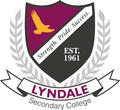First Aid/Illness at School

FIRST AID
REMINDER – Students who are unwell at school
This is a friendly reminder that students who are feeling unwell at school should come to First Aid (at the Front Office) and are not permitted to contact their parents/guardians directly.
If your child is feeling unwell at school, they must follow the following steps:
- During class time, students can ask their teacher for permission to visit First Aid. If students are feeling unwell in the yard during recess or lunch, they can go directly to First Aid.
- Students will be assessed by a First Aid Officer who will contact parents/guardians and make appropriate arrangements if the student needs to go home.
First Aid Officers update Compass every time a student presents to First Aid.
Please ensure your contact details, including emergency contact details, are up to date. This allows staff to contact parents/guardians in a timely manner so care and medical assessment can be arranged.
When parents/guardians arrive at school they are to report to the Front Office where First Aid staff will meet them, provide updates and hand over care of the student.
At no stage are students who are feeling unwell to leave the college grounds without coming to the Front Office/First Aid.
Our highest priority is our duty of care to your children- your support with following the above procedure is appreciated.
MEDICATION AUTHORITY FORMS
At times, students may need to take medication at school. If your child needs to take medication during school hours, either every day or on an as needed basis, please complete and return the College Medication Authority Form to the Front Office. The form must be filled in, signed and returned along with the medication that needs to be administered.
Medication is stored securely in the First Aid Room. When medication is administered to a student by staff, this is recorded on Compass.
Medication Authority Forms can be found below, found on the College's website or obtained from the Front Office.
Note: Medication to treat asthma or anaphylaxis does not need to be accompanied by a medication authority form as it is covered in a student’s health plan.
MANAGEMENT OF PERIOD PAIN AT SCHOOL
An Australian study indicated that 21 per cent of young people between the age of 15 and 19 experience severe pelvic pain during their periods, and almost half of all Australian women experience pelvic pain. For the 1 in 9 women with endometriosis, diagnosis can take on average seven years.
In response to this, the Department of Education has funded the delivery of menstrual health and pelvic pain education sessions for all students starting later this year.
For students who experience pelvic pain that stops them from attending or engaging in school:
- Parents/guardians can complete a Medication Authority Form and return it to the school along with pain relief medication (Panadol, Nurofen, Ponstan, Naprogesic). This enables the school to administer medication to students as needed.
- Students are encouraged to book an appointment with their family GP or Doctors in Schools to seek medical assessment and advice. Students can request an appointment with the Doctors in School GP by clicking on this link.
Thank you,
Lyndale Secondary College
